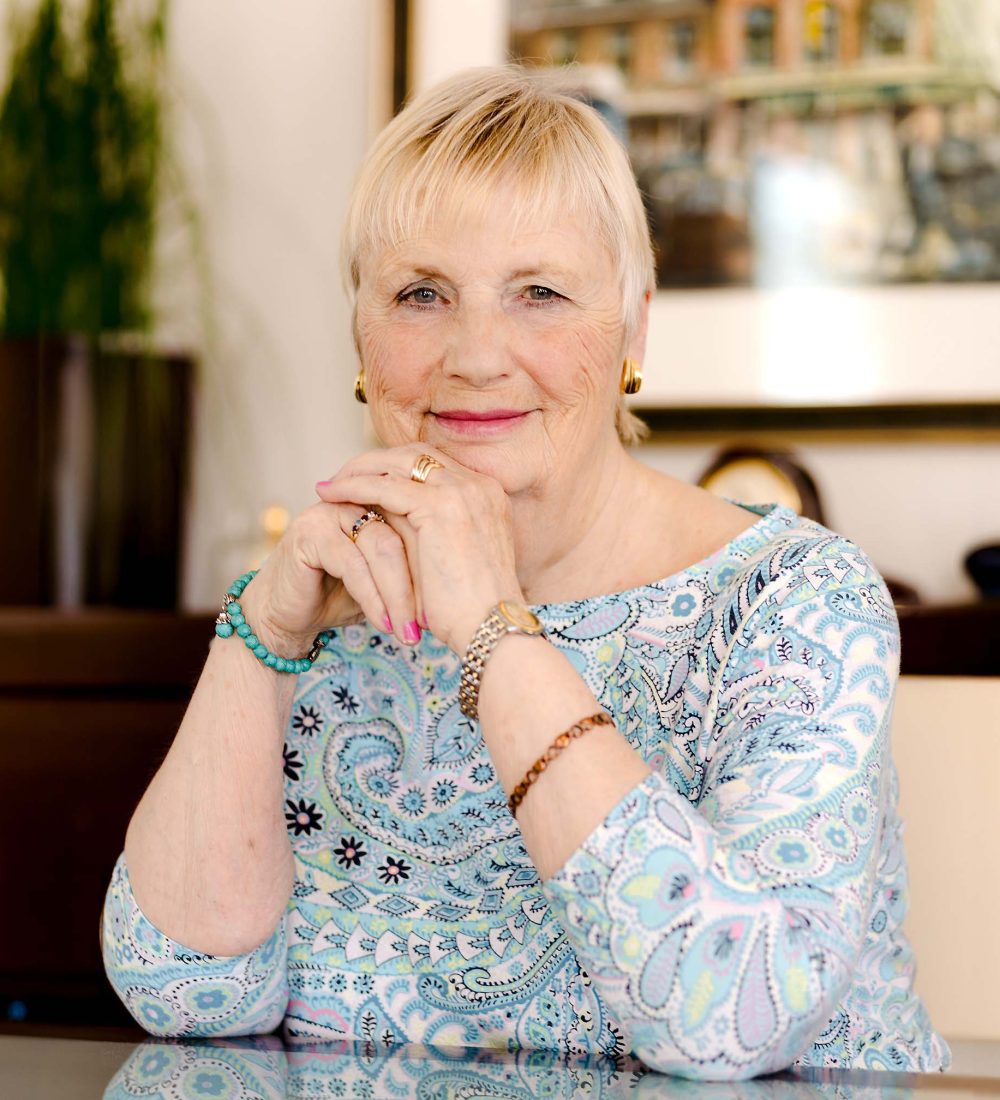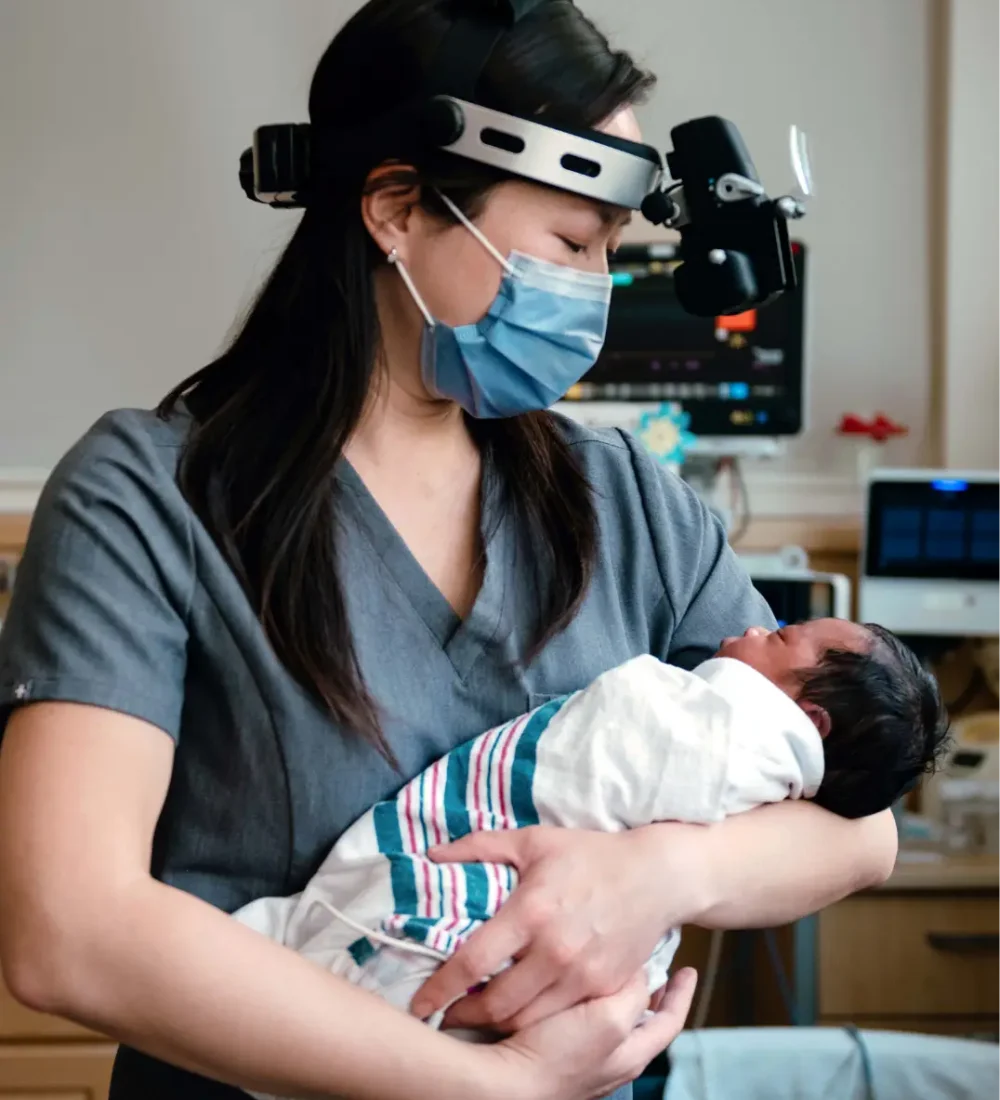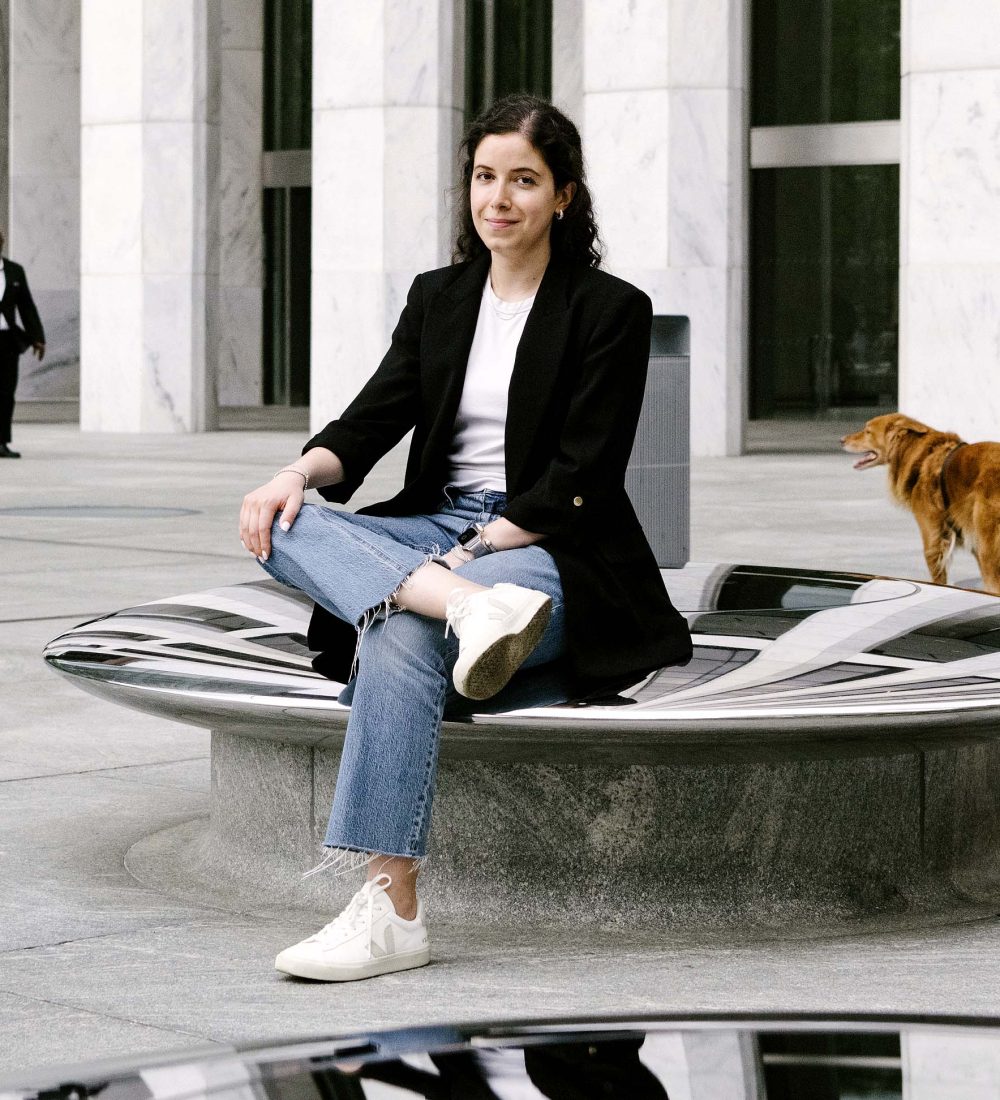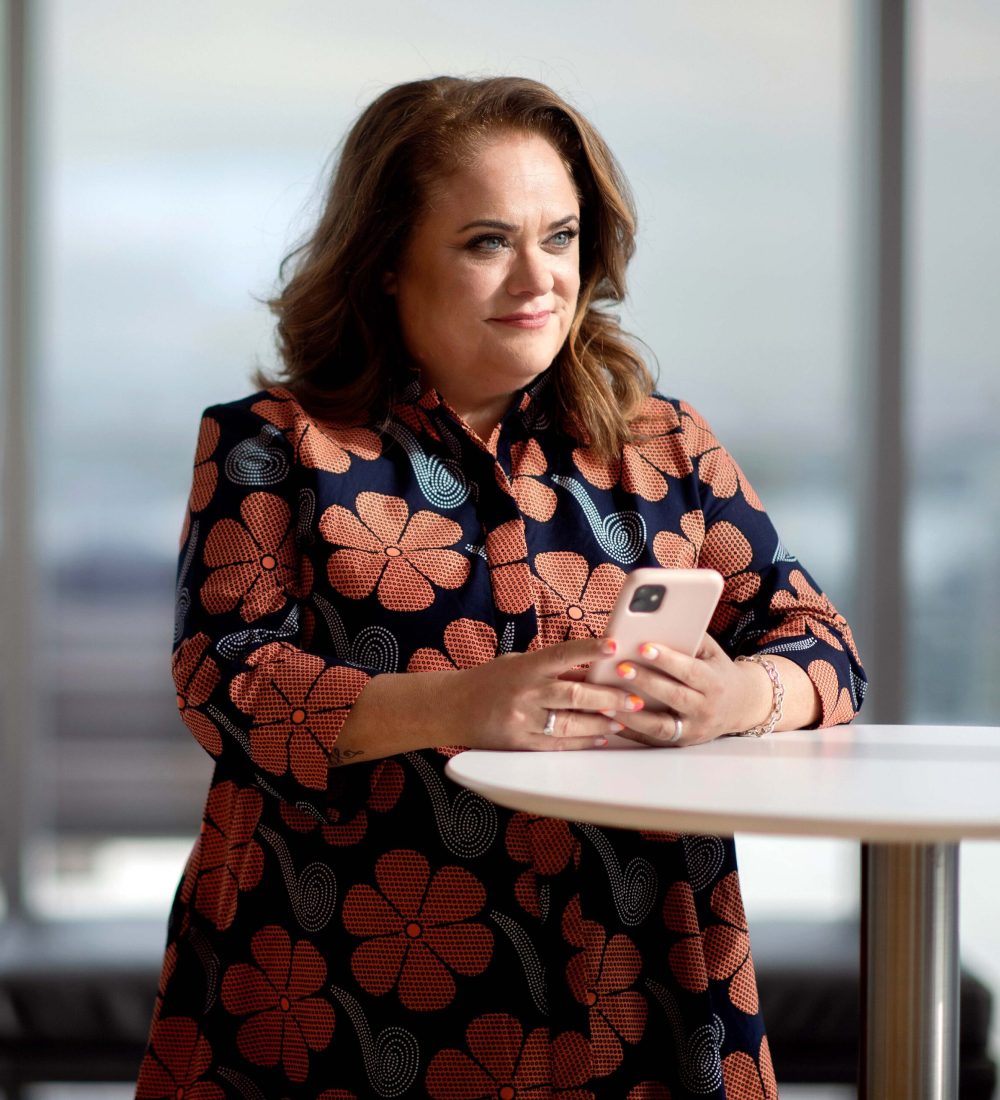Krystal (Godri) Pollitt ’01 journeys from founding Havergal’s Robotics Club to pioneering exposomics as a Yale scientist, exploring the impact of environment on health.
Krystal Godri Pollitt
Written by Sharon Chakkalackal ’01
Photography by Mark Sommerfeld
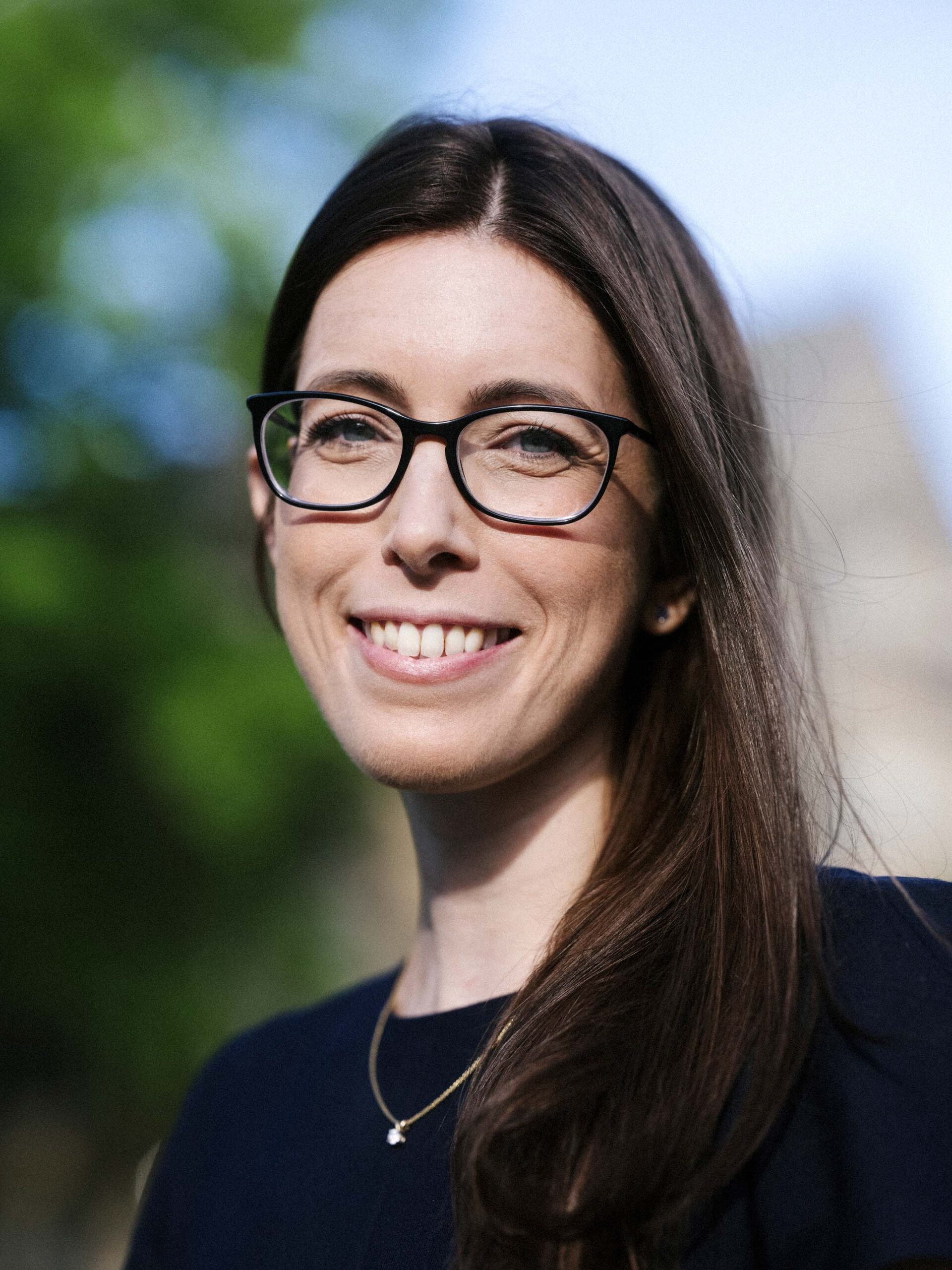
Krystal is an associate professor at the Yale School of Public Health and holds a cross-appointment at the Yale School of Engineering and Applied Science. She obtained her doctoral degree in environmental toxicology from King’s College London subsequent to Bachelor’s and Master’s degrees in chemical engineering from the University of Toronto.
Krystal and Sharon met in middle school and quickly became friends. While at Havergal, they often geeked out at the Robotics Club that Krystal founded. They still connect at mutual friends’ events.
Krystal: My research explores the influence of the environment on our health. Traditionally, science has looked inwards, at our genome, to explain disease. As we recognize that genetics can only examine a small portion of disease, a new field, called exposomics, has recently emerged to examine how our genes, together with all the physical, chemical, biological, and social factors we are exposed to throughout our lives, impact our wellbeing. I lead a research group that develops wearable technologies to capture a person’s exposure to thousands of different environmental influences, from consumer products and building materials to dietary sources and pharmaceuticals. These tools have enabled scientists to use exposomics to understand drivers of disease. Shifting to considering multiple non-genetic influences on health will improve our capacity to prevent exposures rather than focus on treatment.
Sharon: Who or what has best prepared you for the shifts?
Krystal: I trained as a chemical engineer which provided a solid foundation in quantitative methods. Through hands-on, real-world projects in my undergraduate and graduate engineering courses, I also learned how creative design could be applied to solve complex environmental and health challenges. My current research in exposomics continues to draw on engineering approaches to develop innovative technologies aimed at enhancing public health.
Sharon: How did Havergal prepare you for your role’s shifting demands?
Krystal: Teachers at Havergal nurtured my curiosity in the classroom and through science, math, computer, and robotics extracurricular activities. From designing model rockets and robots to conducting independent chemistry experiments, they always encouraged my endless questions. These experiences encouraged creative problem solving and introduced me to the field of engineering.
“I would ask my future self to recall the aspirations that I had as a student at Havergal, reflect on my journey since those early days, and cherish the family and friends that supported this journey.”
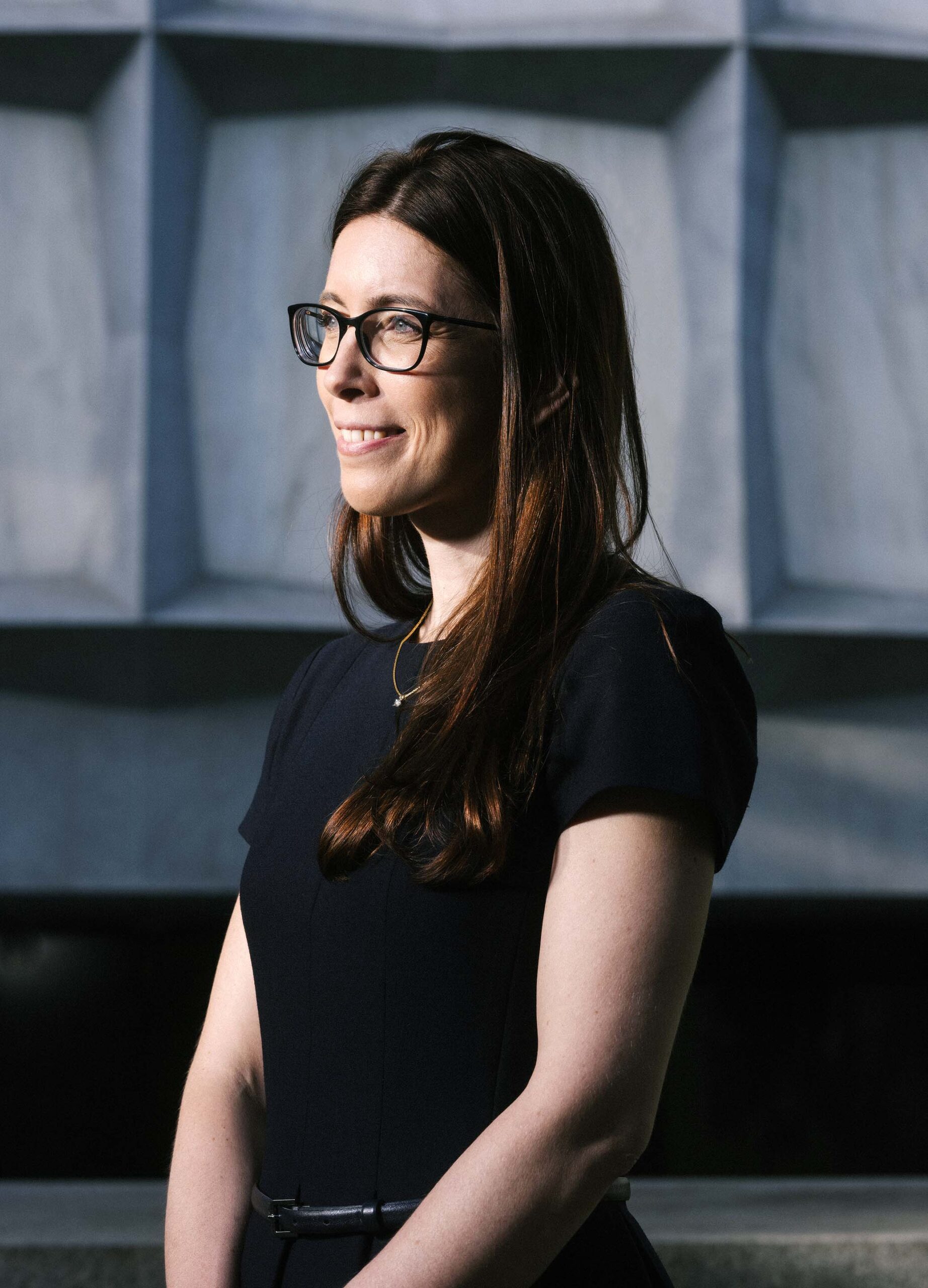
Sharon: What has been the hardest obstacle to any shifting demands within your industry?
Krystal: While the concept of an environmental complement to the genome was introduced two decades ago, the field dedicated to the study of the “exposome” has yet to reach maturity. Until recently, ambitious goals have challenged consensus on how to define the field and raised concerns regarding feasibility. I have found working collaboratively with scientists from varied disciplines to conceptualize this new field and to develop new methods to sequence the exposome has been incredibly rewarding.
Sharon: As a student at Havergal, what would you have said to your future self?
Krystal: I would tell my future self to approach life with the same curiosity and enthusiasm as during my time at Havergal.
Sharon: What would you say now to your future self?
Krystal: I would ask my future self to recall the aspirations that I had as a student at Havergal, reflect on my journey since those early days, and cherish the family and friends that supported this journey. I would also encourage my future self to continue to embrace challenges and remain open to new ideas and experiences.
❋ ❋ ❋
Dr. Pollitt is an Associate Professor in the Department of Environmental Health Sciences at the Yale School of Public Health and holds a cross-appointment in the Department of Chemical and Environmental Engineering at the Yale School of Engineering and Applied Science. She obtained her doctoral degree in environmental toxicology from King’s College London subsequent to bachelor’s and master’s degrees in chemical engineering from the University of Toronto. Her expertise is in environmental chemistry, exposure assessment, and high-resolution mass spectrometry methods. She leads a research team has pioneered analytical and bioinformatic methods to sequence the exposome.
Dr. Pollitt’s research has garnered an international reputation for her technological innovations, receiving invitations to be on expert panels, including to the Chief Science Advisor of Canada, to serve on national and international grant review and editorial boards, and to speak at numerous scientific meetings. Her work has been funded by federal, state, and foundation awards and resulted in over 100 peer-reviewed papers in top-ranking journals in field of environmental health and environmental chemistry, including Nature Communications, Environmental Science & Technology, Environmental Health Perspectives, Environment International, and Analytical Chemistry. She has also been frequently featured in national media outlets, including The New York Times, The Washington Post, The Wall Street Journal, and Popular Science. Dr. Pollitt was awarded the Yale School of Public Health Early Career Research and Team Science Awards as well as the Joan M. Daisey Outstanding Young Scientist Award from the International Society of Exposure Science in recognition of her research excellence.
❋ ❋ ❋
Interviewer: Sharon Chakkalackal ’01, is a public health & social policy professional with experience in issues pertaining to people with mental health challenges, people with developmental disabilities and the families that support them. Sharon has Ontario and international experience in research, design thinking, strategy and brings a strengths-based approach. Sharon is also a self advocate and a published author including Patient’s Perspective – The Will to Live a Good Life, Journal of Parkinson’s Disease. Sharon holds a Bachelor of Science from McGill University and a Master of Public Health from Brown University.
More Profiles
- Old Girl/ Alum, Profiles
